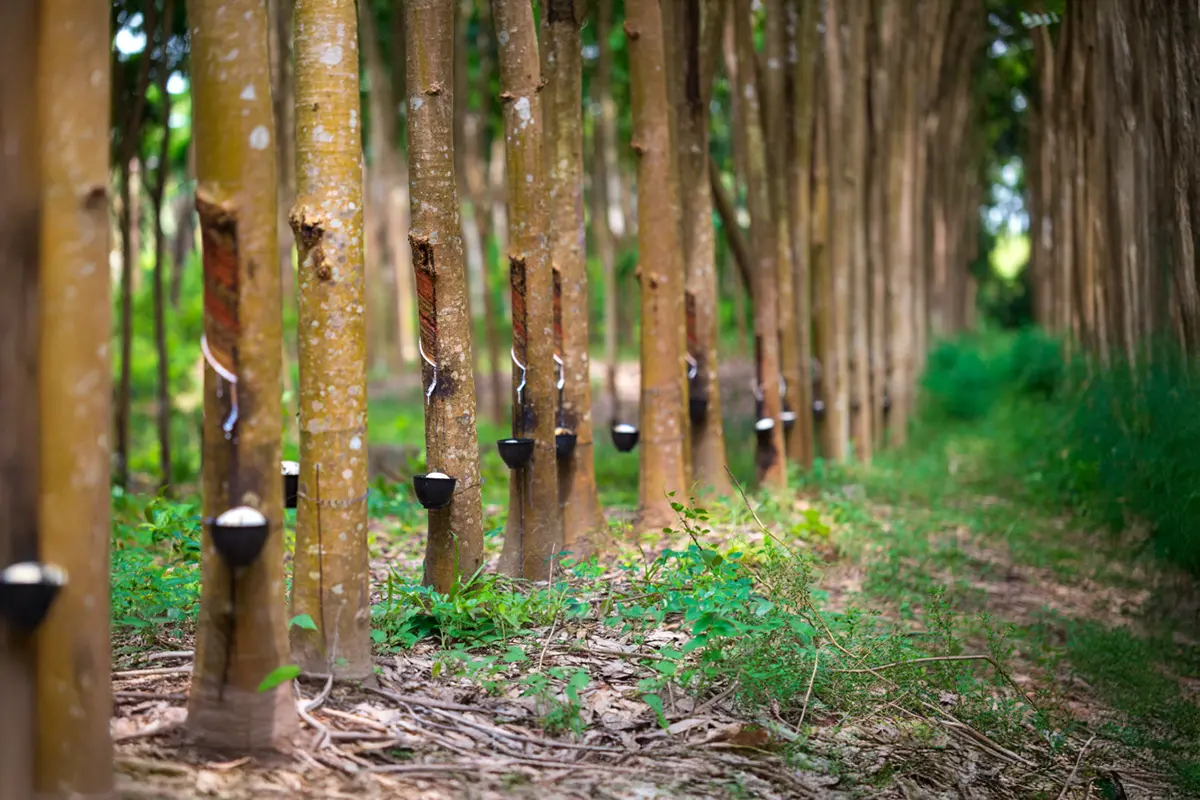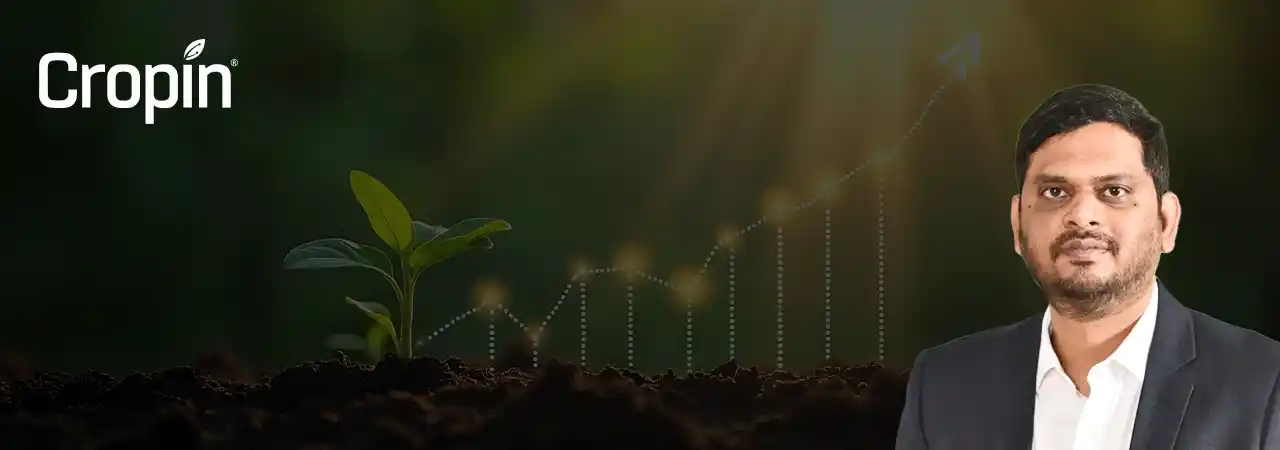Present-day hurdles in natural rubber production
The production of rubber is often associated with concerns regarding the sustainable cultivation of the trees, not very unlike that of oil palm. Some of these social and environmental issues include rapid and extensive deforestation causing the loss of biodiversity and the habitats of diverse endangered species of birds and animals, illegal expansion of plantations into natural forests, displacement of indigenous communities, and land-grabbing by large corporations.
A collaborative pursuit of sustainability in natural rubber supply chain
Digitising the supply chain for better transparency with Cropin
Faced with global demand for sustainable rubber products, several large corporations are committing themselves to improve transparency and sustainability throughout the rubber value chain, by collaborating with the different stakeholders to harmonise standards, uphold human rights, and preserve natural resources. In this endeavour, enabling technology solutions, such as Cropin, play a pivotal role in monitoring the progress by capturing critical data points at each stage of the supply chain. Starting from adherence to good agricultural practices and ensuring ethical labour practices at plantation-level, to increasing the visibility of operations from end to end, digital platforms go a long way in supporting the stakeholders achieve their goals..
Training and support for sustainable production of rubber
Cropin’s platform facilitates rubber-producing companies to sensitise plantation workers to climate-smart and sustainable cultivation practices, and monitor their progress to ensure the adoption of the same. Cropin also provides real-time agro-technical and agronomic advisories, supported by satellite-imaging and weather-based data, to reduce crop loss and optimise resource management. The organisation can configure activity schedules and the package of practices (POP) in Cropin’s SmartFarm® application, which can then be used by the agri-extension staff to guide the farmers in following the right practices for optimum yield. The knowledge that plantation workers gain through such training and advisories enables them to minimise improper or excessive use of agrochemicals and be better equipped to manage pests and crop disease.
Ensuring ethical labour
With Cropin’s mobile application, organisations can register the primary details of each plantation worker, including their name, photograph, proof of identity, and consent signatures to enable the organisation to verify that no child or forced labourers are employed in the plantations. Extension agents can also register the exact location of each plantation to establish the origins of every unit of the produce. Further, the management can pre-configure the protocols to track fair labour practices in the application, which can then be compared with the data that extension workers capture at ground level to ascertain that these practices are being adhered to.
End-to-End traceability
Cropin’s traceability solution harnesses the data collected at every point of rubber production to increase transparency and visibility over farm operations. Producers can effectively monitor and regulate specific parameters that impact the environment, the safety and welfare of labourers, and the quality of yield. Cropin’s multi-stakeholder platform extends SmartFarm’s offerings beyond farm operations to facilitate traceability of produce beyond the point of harvest too. With the help of Cropin’s packhouse solution SmartWare®, each of the actors along the supply chain can add production details pertaining to their scope of operations, thus making end-to-end traceability possible for the end product.
SmartFarm® permits enterprises to configure agricultural practices as recommended by certification bodies such as GLOBALG.A.P. or FairTrade, and digitally record each activity from start to end of production as per requirement. The exact geo-location of the plantations, details of plantation workers, protocols for workplace safety and employee welfare, and other pertinent information can be accessed by authorised users to prepare reports specifically for certification purposes. This functionality of Cropin significantly reduces the time and effort required to compile the information required to validate the organisation’s commitment to producing rubber sustainability in all aspects.
Monitoring land usage
In addition to the data collected at ground-level, governments, NGOs, and other key stakeholders can leverage Cropin’s AI/ML-powered engine SmartRisk® to map historical land usage based on satellite-imaging data. SmartRisk’s proprietary algorithms deliver insights that will help the stakeholders to identify if primary forests have been cleared by rubber producers to allow for the expansion of plantations. Corporations can benefit from this intelligence to verify claims of sustainable production and make the right decisions to source from plantations that do not have a negative impact on the environment. On the other hand, government entities can monitor the change in land usage to apprehend organisations that do not adhere to sustainable practices.
Enhanced livelihoods of plantation workers
Thanks to increased levels of consumer awareness and the global effort to drive sustainable rubber production, certifications for sustainably produced products can now fetch a premium price, which can improve incomes and livelihoods for plantation workers. With an increase in market prices, plantation owners would also be encouraged to improve the infrastructure in the plantation and provide better facilities for the employees. When end-consumers refuse to buy from sources that do not employ socially and environmentally sustainable practices, rubber producers will be compelled to adopt practices that will attract buyers. Collectively, the collaboration of all stakeholders towards the same goal will guarantee better livelihoods for millions of plantation workers globally.
Take part in the global campaign for ethically- and sustainably-sourced natural rubber. Get in touch with us today to explore how Cropin can strengthen your initiatives.










